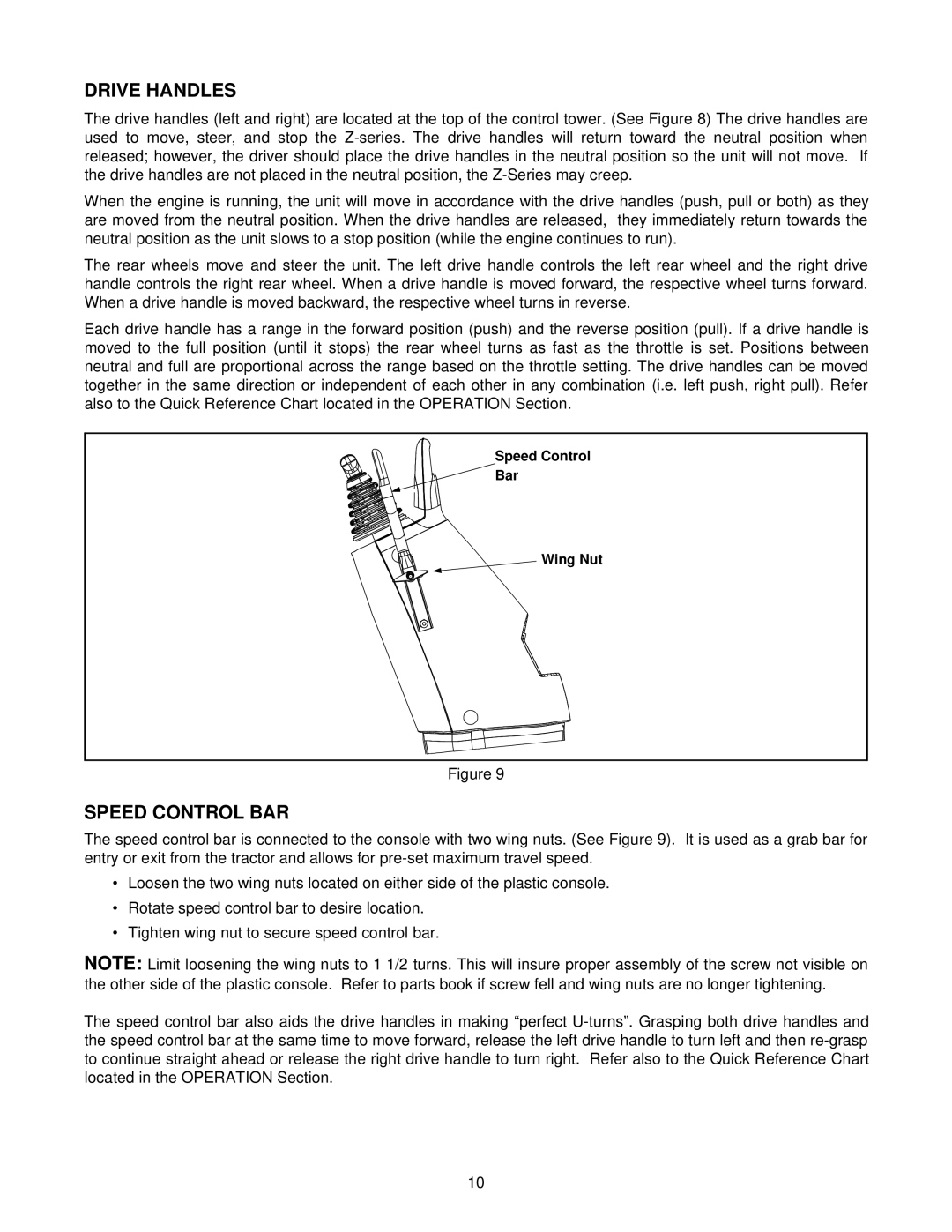
DRIVE HANDLES
The drive handles (left and right) are located at the top of the control tower. (See Figure 8) The drive handles are used to move, steer, and stop the
When the engine is running, the unit will move in accordance with the drive handles (push, pull or both) as they are moved from the neutral position. When the drive handles are released, they immediately return towards the neutral position as the unit slows to a stop position (while the engine continues to run).
The rear wheels move and steer the unit. The left drive handle controls the left rear wheel and the right drive handle controls the right rear wheel. When a drive handle is moved forward, the respective wheel turns forward. When a drive handle is moved backward, the respective wheel turns in reverse.
Each drive handle has a range in the forward position (push) and the reverse position (pull). If a drive handle is moved to the full position (until it stops) the rear wheel turns as fast as the throttle is set. Positions between neutral and full are proportional across the range based on the throttle setting. The drive handles can be moved together in the same direction or independent of each other in any combination (i.e. left push, right pull). Refer also to the Quick Reference Chart located in the OPERATION Section.
Speed Control |
Bar |
Wing Nut |
Figure 9
SPEED CONTROL BAR
The speed control bar is connected to the console with two wing nuts. (See Figure 9). It is used as a grab bar for entry or exit from the tractor and allows for
•Loosen the two wing nuts located on either side of the plastic console.
•Rotate speed control bar to desire location.
•Tighten wing nut to secure speed control bar.
NOTE: Limit loosening the wing nuts to 1 1/2 turns. This will insure proper assembly of the screw not visible on the other side of the plastic console. Refer to parts book if screw fell and wing nuts are no longer tightening.
The speed control bar also aids the drive handles in making “perfect
10
